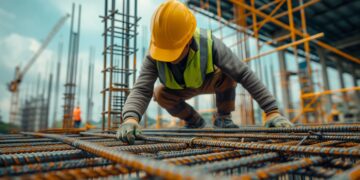What types of new organizations, products, or services will arise due to COVID that haven’t yet been discussed widely? How has COVID pushed forward innovation of new companies and consumer needs? Strategy & Innovation Lecturer Peter Marton offers insight into what the reality of our circumstances has caused to change, for better or worse, for short-term or long.
The COVID pandemic has certainly driven much of society into a variety of sufferings. We have changed our habits, lived within new personal, social, and work models, and grieved the sick and the dead. No one would ask for this. No one deserves this. Yet, out of this darkness can come insights, ideas, and improvements that both help us all through our current challenges and serve us into the future. Some are localized and short-lived, and some will cause things that matter to change forever. Here are a few things that the reality of our circumstances has caused to change, for better or worse, for short-term or long.
Where we work. There was a time when we believed that two foundational theories of group-work were true: 1) that it was important for us to be “together” with our co-workers in order to be collectively productive and happy, and 2) that in general people would not be productive unless pulled out of their personal space and placed in a separate space dedicated to work. The remote work arrangements of the pandemic seem to have shown that we can actually be productive in a highly fragmented work structure and that people will actually work hard, dependably, and adequately efficiently from home. The degree to which this is less efficient than before will be considered and studied, but now we have actual data and experience to factor into these considerations.
How we educate. Until recently, remote online education was considered to be an interesting sideline to traditional education. It was a growing phenomenon that was producing value for many students, but it was also operating in the massive shadow of traditional classroom education. College and adult-level education were considered the most appropriate for this, and little core education of children was conducted in a remote manner. The pandemic has driven universities delivering traditional classroom education to either develop partial-in-class hybrid systems or fully on-line educational services. In many cases, we have learned of some of the material educational and social disadvantages of this approach. In others, we have discovered that, with certain key innovations in remote technology and teaching methodologies, online education at the university level can be quite effective. We have also learned more about the challenging societal impact of online and at-home education for children. Future options and considerations with regard to educational methods will be informed by this. Of course, this all exists within social and economic models that are woven into our society and daily lives, so the overall practicality and desirability of any changes will be tested over time. Still, our suffering in the pandemic had moved us to places, methods, and discoveries that would have gone unseen in regular times.
How we find jobs and hire for jobs. These days, in-person interviews are rare. Online interviews and related discussions are the norm. To what degree is this inferior to traditional in-person methods? Are the systems we’ve recently developed to handle the job seeking and job hiring processes sufficiently good for some meaningful purposes? Do we need to snap back entirely to the traditional way of doing this, or will behold onto some portion of these inventions. Again, we have data and experience that will enable us to better determine our path going forward.
How we shop and socialize. The pandemic has separated people from family and friends and has separated people from the venues of commerce and socialization upon which they have relied all their lives. This has driven many of these venues of interaction – restaurants, food stores, concert venues, hairdressers, and many others – to invent new ways of interacting with customers while keeping everyone safe. Some of these inventions may very well outlast the pandemic. We are already experimenting with new ways of dining and take-out, new ways to manage customers in stores and shops, and new approaches to entertainment. Some of these innovations will prove to have lasting value, while others will face away.
Who we trust. People often choose to turn to institutions for comfort and guidance. Over time, many people have come to trust entities within such areas as government, science, politics, and religion. The pressure placed on many people and institutions by the pandemic and related stresses has caused cracks in the fabric that is at the foundation of much of this trust. Will these effects and related stresses and inefficiencies produce innovations in how those institutions operate or how we relate to and draw from them over time? This is yet another thing we will discover as time passes.
The harsh realities of the pandemic are very real and sharp-edged. It has pushed both individuals and society as a whole through pain and suffering in a very literal sense. A few things are sure to be true, however. We will never be the same. The human damage cannot be repaired, yet out of the ashes we can harvest some learning, and from learning will come progress.























![[Deutsche Welle] The Scientific Innovation Sparked by the Pandemic](https://insights.bu.edu/wp-content/uploads/QUESTROM-EXPERTS-1-360x180.png)


